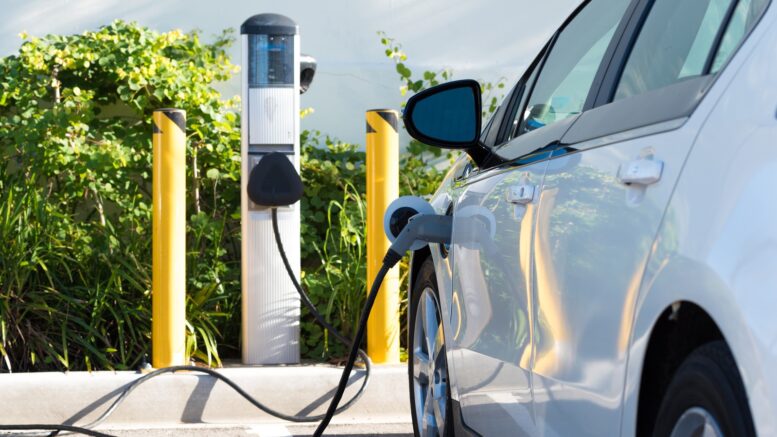President Joe Biden has set the goal for 50% of new car sales to be electric vehicles by 2030, but some Georgia critics say the goal is unrealistic.
Woodstock nondestructive testing engineer Ken Hardy, who owns Energy Beam Systems, said the U.S. does not have the electric power sources and grid to support millions of electric vehicles on the road. There are many technical hurdles to accelerating the electric vehicles industry in less than 10 years, Hardy said.
“With coal-powered generating plants being taken offline each year and a diminishing natural gas supply … the U.S. is facing a big shortfall of electric power,” said Hardy, who has consulted for manufacturers in the electric vehicle field on issues with batteries and drivetrains. “Wind and solar won’t make up the difference.”
Biden signed an executive order Aug. 5 that calls for half of all new vehicles sold in 2030 to be zero-emissions vehicles. The order is paired with funding and is aimed at making the U.S. leaders in the electric vehicle industry.
The Biden administration said the order initiates “long-term fuel efficiency and emissions standards to save consumers money, cut pollution, boost public health, advance environmental justice, and tackle the climate crisis.”
Hardy, who has worked with electric utility companies such as Southern Company, Duke Energy and Florida Power and Light for more than 50 years, said states do not have the road infrastructure to support quick and convenient charging.
“Travel will suffer, along with the business that depends on that travel,” Hardy said in an email.
Hardy said the electric technology is possible, but it could be costly.
Biden’s order calls for investments in a national network of electric vehicle charging stations, point-of-sale consumer incentives, the expansion of the full domestic manufacturing supply chain and technology.
Georgia could get $135 million over five years to support the expansion of an electric vehicle charging network under the $1.2 trillion federal infrastructure plan approved Aug. 10 by the U.S. Senate. The state also would have the opportunity to apply for the $2.5 billion in grants for electric vehicle charging.
Georgia has seen growth in the electric vehicle manufacturing sector, with global leaders setting up facilities in the state. Gov. Brian Kemp announced last month the launch of the Electric Mobility and Innovation Alliance. The statewide collaborative between the private and public sector is aimed at developing the industry.
While automakers and supply manufacturers are making major investments in the electric vehicle industry, Georgia Institute of Technology Professor Omar Isaac Asensio said more funding is needed to meet the 2030 deadline.
“To make this a reality, however, additional investments are needed to ensure complimentary access to station infrastructure, which has a long way to go to instill public confidence both in availability and reliability,” Asensio said. “Consumer perceptions about the quality and reliability of infrastructure remain a critical barrier to accelerating EV adoption.”
Experts at Ceylon Graphite, a company exploring processing options for electric vehicle and battery storage, said a shortage of critical minerals such as graphite could be a huge problem for electric vehicle production.
According to the Benchmark Mineral Intelligence, the demand for graphite from the battery sector is expected to rise 30% a year every year until 2030, and the U.S. will be in a deficit by 2022.
A representative for Ceylon Graphite said the U.S. does not have manufacturing plants that can supply automotive-grade graphite. China controls 84% of the global supply, the company said.
This article was originally posted on Biden’s electric vehicle goal too ambitious

Be the first to comment on "Biden’s electric vehicle goal too ambitious"